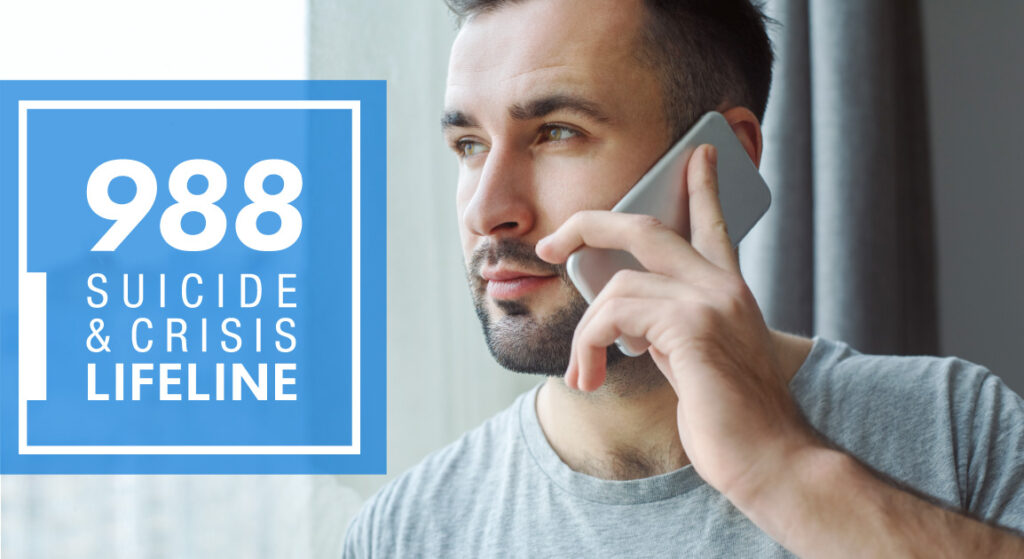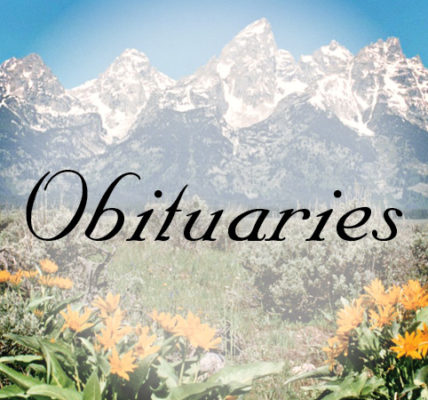Suicide hotline funding moves on; spending proposal sparks emotional debate at Capitol

By Aedan Hannon
Casper Star-Tribune
Via- Wyoming News Exchange
CASPER — Lawmakers took a step toward addressing suicide in Wyoming on Thursday as the state continues to reel from a crisis that left more than 180 people dead in 2020 alone.
In the measure’s first full vote, the House passed a bill Thursday that would establish a $40 million trust fund and $6 million reserve account for Wyoming’s 988 suicide and crisis hotline, providing permanent financing for the suicide prevention program amid the ups and downs of the state’s economy.
The House voted by a 34-23 margin following vigorous debate about the structure of the funding and the efficacy of the suicide and crisis lifeline.
The state got its first in-state suicide hotline in 2020. Before then, calls were routed out of state.
While the bill’s passage through the House marks a significant step, the future of the bill is still uncertain.
Rep. Steve Harshman, R-Casper, the chairman of the House Revenue Committee, which sponsored the legislation, asked members to pass the bill and propose amendments during later readings rather than kill it during the first vote.
The bill will now be read two more times in the House.
The chamber was somber as lawmakers held an emotional debate with both proponents and opponents of the bills acknowledging that Wyoming is struggling to address climbing suicide rates.
For several lawmakers, the subject of suicide elicited a visceral response.
Rep. Andrew Byron, R-Jackson, told House members that as a first responder for Jackson Hole Fire/ EMS he had no mental health intervention training.
“I can’t share some of the stories because this House can’t hear them,” he said.
Visibly moved, he asked, “What is one life worth?”
Other supporters of the 988 lifeline trust fund also positioned the bill as an issue of saving money or saving lives, arguing that the lifeline can make a difference for those in crisis and help Wyoming tackle its title as the worst state for suicide in the U.S.
“Suicide not only impacts that person, but their families, their communities and their employers,” said Rep. Jon Conrad, R-Mountain View. “Although we can debate the value of the money, I encourage all of us to think about our Wyoming values.”
Permanent funding for the 988 lifeline had firm and vocal support, but more than half of those who rose to speak during the floor debate urged House members to reject the bill. Those who objected to the measure took issue with the trust fund and questioned the efficacy of the 988 lifeline in preventing suicides.
Rather than the Legislature appropriating money, earnings from the trust fund would transfer directly to the Wyoming Department of Health to finance the annual operations of the lifeline, which would total an estimated $2 million in the 2025 fiscal year.
Roughly $700,000 per year would support the operation of the 988 lifeline call centers, while another $1.2 million would fund crisis services, including mobile crisis teams that would respond to callers.
The lifeline is currently funded for the next year and a half by $2.1 million in federal COVID-19 relief money and $400,000 in state general funds Gov. Mark Gordon and the Legislature appropriated during last year’s budget session.
With federal funds drying up and future financial commitments unclear, mental health advocates and some lawmakers have argued for a sustainable funding source that would be insulated from economic downturns and the whims of Wyoming’s two-year budget cycle.
But Rep. John Bear, R-Gillette, the chair of the Wyoming Freedom Caucus, insisted that the Legislature should oversee all of the state’s purse.
Bear sought to convince lawmakers that voting against the bill would not defund the 988 lifeline in the state.
“We continue to move these things off budget by creating these trust funds and they become automatically funded,” he said. “There may be very good reasons for automatically funding something, but we must remember our responsibility is to approve those funds on a regular basis. Once it’s in a trust fund, we will not see that.”
Other opponents of the bill questioned whether a hotline was the answer and said the state needed to search for other solutions.
“It’s not that it’s not effective, but we must admit to some degree it’s a bit of an attack on a symptom,” said Rep. Tony Locke, R-Casper. “I only throw that out from the perspective to make sure we think the problem through more broadly and keep our finger on the pulse of the effectiveness of what we do,” he said.
Rep. Lloyd Larsen, R-Lander, countered that the 988 lifeline was never intended to serve as the sole method for addressing suicide.
“Nobody is trying to suggest that a suicide hotline is the end all solution for suicide, but it’s a very key component as has been recognized by our mental health professionals,” he said.
Harshman noted that the Legislature has yet to find other sustainable funding streams for the 988 lifeline. Lawmakers have previously balked at a phone tax while pulling money from the general fund every two years would put future financing for the 988 lifeline in flux, Harshman said.
“Most of these calls go up frankly when Wyoming is hurting the worst,” he said. “When people are losing their jobs, when oil is dropped down to $20 barrel and when people are hurt, that’s when people get into this financial stress [and] the calls are going to go up.”
The House Revenue Committee heard lengthy testimony calling for stable and sustainable funding when it considered the 988 lifeline funding bill last week.
Roughly a dozen representatives from organizations around the state ranging from the Wyoming Mining Association to the Wyoming chapter of the Alzheimer’s Association addressed the committee and voiced their support. It was the broad coalition of backers that advocates highlighted when promoting the bill.
“Today we have a wide variety of stakeholders advocating for this [legislation] because we are seeing how the lack of mental health infrastructure is impacting their communities, their businesses and their industries,” Lindsay Simineo, the legislative advocate for the Wyoming Counseling Association, said last Thursday. “I could not recall the last time a bill has united so many different stakeholders like this.”
Those who spoke expressed concern about the growing toll of suicide in Wyoming.
“Being No. 1 in the country in suicide is not only a public health crisis, it’s a business crisis,” Cindy Delancey, the president of the Wyoming Business Alliance, told the committee. “We cannot turn our back on our most important asset, which is our people, our workforce.”
Wyoming has led the U.S. in suicide rate since 2018, and the state’s suicide rate continues to climb, according to Centers for Disease Control and Prevention data.
In 2020, the most recent year of state-specific CDC data, Wyoming had a suicide rate of 30.5 deaths per 100,000 residents. That is more than double the state’s 2005 suicide rate of 17.3 deaths per 100,000 residents.
In 2005, 90 Wyomingites ended their lives. In 2020, the total was up to 182 people, according to CDC data.
Wyoming’s suicide crisis is especially pronounced for the state’s veterans, who are already at higher risk than the general population. Approximately 40 veterans died of suicide in Wyoming in 2020, according to statistics from the U.S. Department of Veteran Affairs.
While the state’s total is just a fraction of those suicide deaths in the West, Wyoming’s veteran suicide rate of 84.1 deaths per 100,000 people is more than double the regional average and nearly triple the national average.
Andi Summerville, the executive director of the Wyoming Association of Mental Health and Substance Abuse Centers, pointed to suicide and mental health crisis hotlines as an important tool for addressing the growing problem.
“We’ll be able to build a better picture for specifically Wyoming in the future, but nationwide, everything that we’ve seen says, ‘Yes, this intervention is effective,’” Summerville said. “From a provider point of view, we know that anybody who’s experiencing mental health symptoms that might lead to suicidality when they have a touchpoint with a provider – whether it’s a mental health provider, a primary care provider, a crisis line – those folks are not the ones that we see completing suicide,” she said.
Those who contact the 988 suicide and crisis lifeline receive follow-up calls.
In one 2018 study, researchers found that 79.6% of those interviewed in follow-up calls reported that contacting the national suicide prevention lifeline stopped them from killing themselves. More than 90% of those interviewed reported that the lifeline kept them safe.
While the 988 lifeline will not eradicate suicide in Wyoming, it is one of the keys to addressing the crisis, Summerville said.
“988 is the gateway to all the services that we have that we need to connect people into and that’s a critical component of this entire discussion,” Summerville said. “988 is just not a standalone service,” she said. “It’s the front door.”




